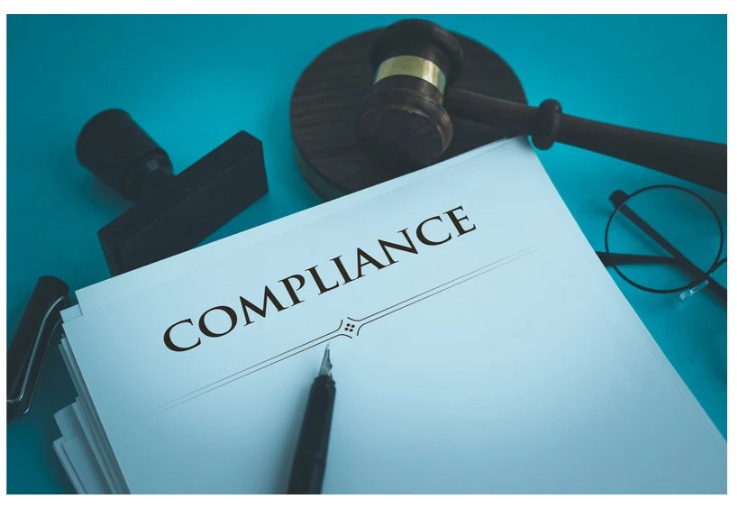
Regulatory Compliance Assessments in the World of Crypto Regulations
The world of cryptocurrency has seen rapid growth and evolution in recent years. While digital currencies like Bitcoin and Ethereum offer exciting opportunities for investors and innovators alike, they have also caught the attention of regulators worldwide. As governments scramble to keep pace with this fast-changing landscape, regulatory compliance assessments have become a critical component of the crypto industry. In this article, we’ll delve into the latest developments in crypto regulations and the importance of compliance assessments for businesses operating in this space.
The Evolving Crypto Regulatory Landscape
Cryptocurrency’s meteoric rise has posed challenges for governments and regulatory bodies. Initially seen as a niche technology, digital currencies are now squarely in the mainstream. Consequently, governments and financial authorities are stepping in to create a regulatory framework that ensures the safety of investors and the integrity of financial markets.
Here are some key trends in the evolving crypto regulatory landscape:
- Licensing and Registration Requirements: Many countries are introducing licensing and registration requirements for crypto businesses. These measures aim to bring transparency and accountability to the crypto space. Businesses must now comply with these requirements to operate legally.
- Anti-Money Laundering (AML) and Know Your Customer (KYC) Regulations: AML and KYC regulations have been extended to crypto exchanges and wallet providers in various jurisdictions. These measures are designed to prevent illicit activities, such as money laundering and terrorist financing, by requiring exchanges to verify the identity of their users.
- Taxation: Governments are increasingly recognizing cryptocurrencies as taxable assets. This means that individuals and businesses that transact in digital currencies may have tax obligations. Compliance assessments now include tax compliance to ensure businesses are fulfilling their tax obligations.
- Market Surveillance: Some regulatory authorities are implementing market surveillance measures to detect and prevent market manipulation and fraudulent activities in the crypto space. These measures are designed to protect investors and maintain market integrity.
- International Cooperation: Cryptocurrencies operate across borders, making international cooperation among regulators essential. Organizations like the Financial Action Task Force (FATF) are working to create global standards for crypto regulation to address cross-border challenges.
The Importance of Regulatory Compliance Assessments
In this rapidly changing regulatory environment, regulatory compliance assessments have become a vital tool for businesses operating in the crypto industry. Here’s why they matter:
- Avoiding Legal Troubles: Non-compliance with crypto regulations can result in severe legal consequences, including fines, penalties, and even criminal charges. Regulatory compliance assessments help businesses identify and rectify any compliance gaps before they become legal liabilities.
- Building Trust: Compliance with regulatory standards helps build trust with customers and investors. It demonstrates a commitment to transparency, security, and ethical business practices, which are essential for attracting and retaining clients in the crypto space.
- Access to Traditional Financial Services: Many crypto businesses need access to traditional financial services, such as banking and payment processing. Banks and financial institutions are often reluctant to engage with crypto companies that don’t meet compliance standards. Regulatory compliance assessments can help crypto businesses meet these requirements.
- Global Expansion: Compliance assessments enable crypto businesses to expand into international markets more easily. Different countries have varying regulatory frameworks, and having a robust compliance program in place can facilitate entry into new jurisdictions.
- Risk Mitigation: The crypto industry is inherently risky due to its volatility and susceptibility to fraud. Compliance assessments help identify and mitigate risks associated with regulatory non-compliance, reducing the likelihood of costly legal disputes.
Regulatory Compliance Assessment Process
The process of conducting a regulatory compliance assessment in the crypto industry can be complex and multifaceted. However, it generally includes the following steps:
- Regulatory Mapping: Identifying and understanding the relevant regulations in the jurisdictions where the crypto business operates or plans to operate. This includes staying up-to-date with the latest regulatory changes.
- Risk Assessment: Evaluating the potential risks associated with non-compliance and understanding their impact on the business.
- Policies and Procedures: Developing and implementing policies and procedures that align with regulatory requirements, covering areas like AML, KYC, tax compliance, and market surveillance.
- Training and Education: Ensuring that employees are trained and educated about compliance policies and procedures. This is crucial for preventing inadvertent violations.
- Ongoing Monitoring: Regularly monitoring and assessing the effectiveness of compliance measures and updating them as needed to stay in line with evolving regulations.
- Third-Party Audits: Many businesses opt for third-party audits or assessments to ensure an impartial evaluation of their compliance efforts.
Case Studies in Crypto Compliance
To better understand the impact of regulatory compliance assessments in the crypto world, let’s look at a couple of case studies:
- Coinbase: As one of the largest cryptocurrency exchanges globally, Coinbase has prioritized regulatory compliance from its inception. The company adheres to AML and KYC regulations, reporting requirements, and regularly updates its policies to stay in line with evolving regulatory standards. This approach has helped Coinbase gain the trust of both customers and regulators, paving the way for its successful IPO in 2021.
- Binance: Binance, another major cryptocurrency exchange, has faced regulatory challenges in various jurisdictions due to its rapid growth and decentralized nature. In response, Binance has announced initiatives to enhance its regulatory compliance efforts. These include expanding its compliance team and cooperating with regulators to address concerns.
Conclusion
The world of cryptocurrency is continually evolving, and so are the regulations governing it. Regulatory compliance assessments have become indispensable for crypto businesses, ensuring they navigate this complex landscape successfully.
By proactively addressing compliance requirements, businesses not only avoid legal troubles but also build trust with customers and investors, gain access to traditional financial services, and position themselves for global expansion. As the crypto industry matures, regulatory compliance assessments will continue to play a pivotal role in its growth and legitimacy, bridging the gap between innovation and regulation in the world of digital assets.
Contact Cyber Defense Advisors to learn more about our Regulatory Compliance Assessments solutions.





